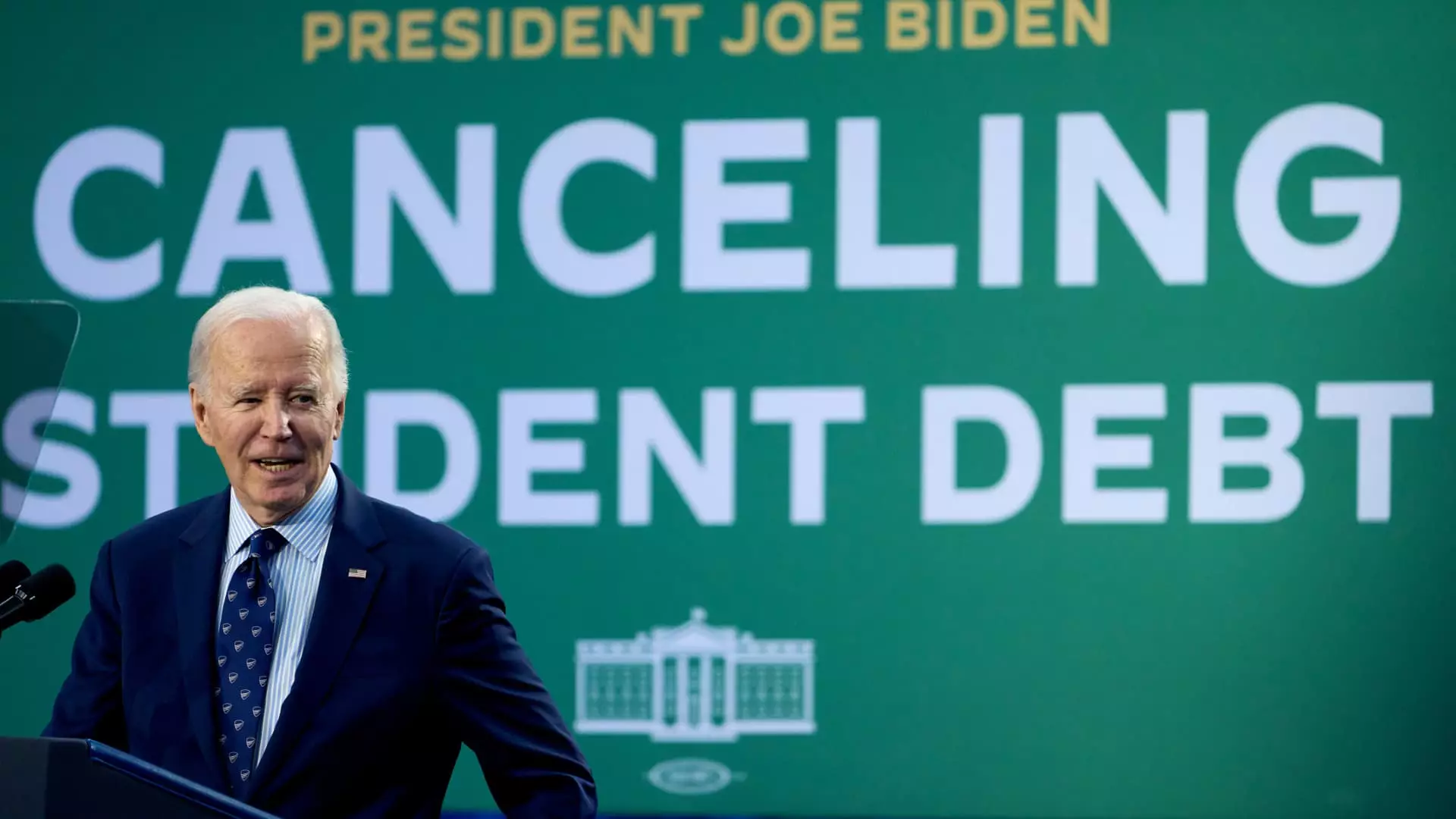On a pivotal Thursday, the Biden administration revealed a significant step in its effort to alleviate the burden of student debt, designating over $600 million in relief for thousands of borrowers. This round of forgiveness is part of the administration’s broader commitment to reform the student loan system and assist those who have been grappling with financial hardship due to their educational loans. Specifically, 4,550 individuals will benefit from the Income-Based Repayment (IBR) program, while an additional 4,100 are former students of DeVry University. The latter group was granted relief following a Department of Education investigation from February 2022, which highlighted the university’s misleading job placement claims.
The case of DeVry University raises significant questions about accountability within the for-profit education sector. By offering misleading statistics about employment outcomes, DeVry misled students into pursuing degrees under the false impression of job security. This decision to forgive debts linked to such misrepresentations highlights the administration’s awareness of the systemic issues in higher education and its commitment to rectify past injustices. The lack of response from DeVry University following the announcement adds another layer of complexity to understanding the institution’s stance and accountability for its practices.
As President Joe Biden nears the end of his term, he leaves behind a legacy of substantial financial relief, having forgiven approximately $188.8 billion in student loans for around 5.3 million borrowers. This extensive effort has not only set a record but has also garnered praise from higher education experts like Mark Kantrowitz, who noted that no president prior has discharged this magnitude of student obligations. However, this achievement also underscores the urgent need for systemic reform in the student loan program, which was effectively disrupted by the Supreme Court’s decision blocking Biden’s broader forgiveness initiative in 2023.
The Biden administration is making strides toward reforming an entrenched system criticized for inefficiencies, particularly in tracking loan repayments. Many borrowers, enrolled in income-driven repayment (IDR) plans, found inconsistencies in their payment counts, which directly affects eligibility for forgiveness after the required period of 20 to 25 years. The administration’s push to rectify these discrepancies demonstrates a focused commitment to transparency and accountability, which is critical in restoring trust within the student loan system. The Education Department now provides borrowers the ability to access a detailed payment count through their online accounts, thus ensuring that individuals can track their progress towards debt relief.
Ultimately, the Biden administration’s announcement regarding student loan forgiveness serves as a critical moment in the ongoing dialogue about the future of higher education funding in the United States. As the nation grapples with the implications of student debt and its profound impact on individuals and the economy, it is clear that while progress has been made, significant challenges remain. The commitment to reform existing programs and provide relief to those wronged by educational institutions marks a necessary step towards a more equitable and just higher education landscape. With the pending changes and ongoing adjustments, borrowers can hopefully look forward to a more supportive environment that prioritizes their financial well-being and educational aspirations.


Leave a Reply